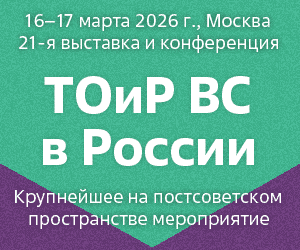Back to the origins
It appears that the program to build the 15-ton Mil Mi-38 utility helicopter is in for more changes. The Russian Helicopters holding company said in mid-April it could abandon the Pratt & Whitney Canada PW127T/S turboshaft engine as the powerplant of choice for this helicopter, which is designed as a replacement for Mi-8/17 rotorcraft.
"We have been forced to revise the terms of our cooperation with Pratt & Whitney Canada," Russian Helicopters director Andrey Shibitov commented. "We are now looking into an alternative option of using Russian TV7-117V engines on the Mi-38. From now on, Russian Helicopters will concentrate its efforts on this version of the helicopter."
Pratt & Whitney Canada was cautious in its comments. "We cannot confirm recent media reports [about Russian Helicopters dropping the PW127T/S]," said company spokeswoman Maria Mandato. "We continue negotiations with our customer."
This is not the first time the Mi-38 has seen its engine supplier replaced. It was conceived in the early 1980s as a purely Russian helicopter, with indigenous engines and avionics. Then the USSR collapsed, and the transition to market economy robbed the program of state funding. In order to continue with the development, the Moscow and Kazan helicopter plants in 1994 teamed up with Eurocopter and the St Petersburg-based engine specialist Klimov Company to set up the Euromil joint venture. Klimov’s interest in the project was to fit the Mi-38 with a turboshaft version of the TV7-117S turboprop engine it was developing at the time.
Klimov walked out in 1996. One year later it was decided to install PW127T/S engines on the Mi-38, but Pratt & Whitney Canada never joined Euromil. In 2000 Euromil and Pratt & Whitney Canada signed a contract for the delivery of the engines for the first prototype.
The PW127T/S-powered helicopter first flew in 2003. Since the very start the Russian side wanted domestic manufacturers to participate in the serial production of the Canadian engine. In a protocol signed in 2008, Pratt & Whitney Canada stated its intention to develop and certify the engine jointly with Russian Helicopters, the Ufa-based UMPO engine plant and the CIAM Central Institute of Aviation Motors. The PW127T/S should have been produced in Russia under license at UMPO facilities. European and Russian certification was expected to be obtained in 2011, while the launch of Mi-38’s serial production was planned for 2012.
Meanwhile, back in 1997 Klimov had its TV7-117S engine certified for the Ilyushin Il-114 regional turboprop. Since then the engine has been produced in small batches due to a modest demand for the Il-114. Klimov general designer Alexey Grigoriev told Russia & CIS Observer: "We have developed a complete documentation package for the TV7-117V, fit-checked the demonstrator engine on a Mi-38 and started building flight-test and certification prototypes." The development of the helicopter variant of the TV7-117 will evidently require cooperative efforts of several Russian engine manufacturers, which have recently merged into United Engine Corporation.
As Mi-38 general designer Georgy Sinelshchikov explained, under the initial estimations the TV7-117 will be much more efficient in intensive full-payload and maximum-range operations than the PW127T/S engine.
By abandoning the Canadian engine the Mi-38 is going back to the original idea of being a purely Russian product. Another foreign partner – Eurocopter, which was responsible for supplying the avionics for the new helicopter — withdrew from Euromil in 2005. However, more time will be needed to turn the current TV7-117 into a helicopter version and launch series production. This may further stall the Mi-38 program.
Ссылки по теме
- Для того, чтобы оставить комментарий, не привязанный к социальной сети, войдите или зарегистрируйтесь на нашем сайте.









